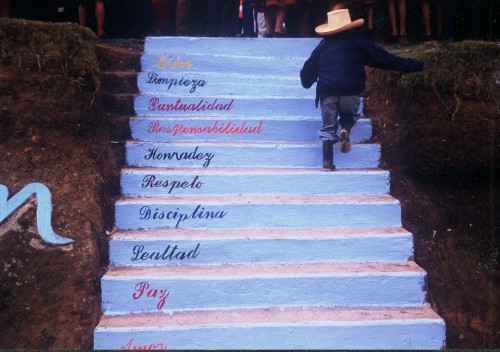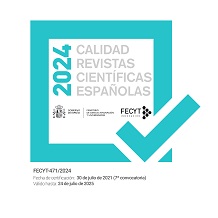PSYCHOSOCIAL AND CULTURAL STEREOTYPE OF MENOPAUSE IN RURAL WOMEN.
Abstract
1. Introduction. Menopause is the medical term which designs the date of the last menstruation. It comes part of the natural ageing process due to the production of less ovaric hormones. The changes which lead to the ceasing of the menstrual function and to the metabolic readjustment take several years, the so-called climatery period. It has been the aim of myths and false beliefs and also a victim of fears and misunderstandings for a long time. symptomatology is not a similar universal experience, but conditioned by sociocultural factors, which are also presented as determinant for perceiving and answering the above mentioned symptomatology. 2. Aim. Try to design the stereotype (perception, attitude and knowledge) about menopause and climatery in women from 40 to 60 in rural areas. 3. Material and methods. With the qualitative method of focal groups the study was carried out in July, August and September for three consecutive years (2003, 2004 and 2005). The population analysed belongs to different villages from the province of Cáceres, and they were women from 40 to 60 who were long termed residents of the village and housewives. With the intervention of a moderator per group, a list of general topics of the health and specific for menopause was used, being this latter the issue of discussion. The information recorded and later transcripted was then analysed. 4. Outcomes. There were eight focal groups from which we can outline some interesting data such as the ignorance of the majority of the term menarquia (first menstruation). They assert having experimented without warning and it was rarely a subject to comment with their mothers. Concerning menopause, it means for them the ceasing of fertility, not perceived as an illness, but as a natural process. Those in this situation, do not refuse talking about their symptoms and they do not relate it as a step towards the old age, it is also considered as a freedom towards the possibility of getting pregnant. They visit the doctor in case they feel any symptom, it does not affect their sexual lives, their information sources are frequently their friends, television and the papers and their more frequent worries are neoplasias and osteoporosis. 5. Conclusions. We deal with women who know what menopause is, who go regularly to health services for regular checking when appearing any symptom or they are persistent. Although there is a general awareness of health, and they are conscious of the life-stage they are at, they do not visit their doctor or specialist to solve any doubts and worries and the least of all to the nurse. There is an excessive support of family and friends (with the risk of an increasing intranquility). We conclude remarking a need of information, dis mythification and the lost of false beliefs, a need which must be spread to the near relatives. In this task, the nursing staff is a qualified professional due to its near place to society and to their own academic preparation.Downloads
The works published in this magazine are subject to the following terms:
1. The Publications Service of the University of Murcia (the publisher) preserves the copyright of the published works, and encourages and allows the reuse of the works under the license for use stated in point 2.
© Servicio de Publicaciones, Universidad de Murcia, 2011 (© Publications Service, University of Murcia, 2011)
2. The works are published in the electronic edition of the journal under Creative Commons Reconocimiento-NoComercial-SinObraDerivada 3.0 España(texto legal) “ a Attribution-NonCommercial-NoDerivatives 3.0 Spain license (legal text)”. They can be copied, used, broadcasted, transmitted and publicly displayed, provided that: i) the authorship and original source of their publication (journal, publisher and URL) are cited; (ii) are not used for commercial purposes; iii) the existence and specifications of this license is mentioned.
3. Conditions of self-archiving. Authors are allowed and encouraged to electronically disseminate the pre-print (pre-reviewed ) and / or post-print (reviewed and accepted for publication) versions of their works prior to publication, as it ensures a wider circulation and dissemination which may lead to a possible increase in its mention and a higher scope among the academic community. RoMEO color: green.














